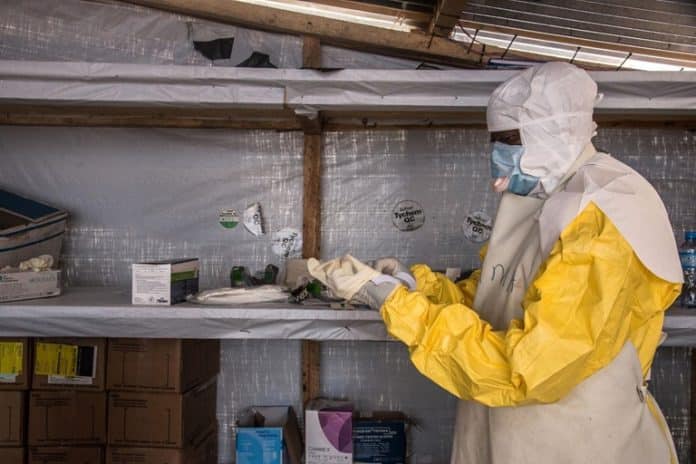In early July, two cases of Marburg virus disease (MVD), a disease nearly as deadly as Ebola, were recorded in Ghana.
According to WHO, although Marburg and Ebola are caused by two different viruses, the two diseases are clinically similar. Both are rare and have the capacity to cause outbreaks with a high mortality rate.
Infection results from prolonged exposure in mines or caves with bat colonies.
Transmission is human-to-human and results from direct contact with blood, secretions, organs, or body fluids of infected persons, or with surfaces and materials (e.g. bedding or clothing) contaminated with these fluids.
Symptoms
The period between infection and the onset of symptoms ranges from 2 to 21 days.
Symptoms include a high fever, severe headache and fainting. Muscle aches and pains are common. Abdominal cramps, nausea and vomiting may appear on the third day. Diarrhea may persist for a week.
Between the fifth and seventh day, many patients may experience severe hemorrhagic manifestations in vomit or stool, along with nosebleeds.
The average fatality rate is around 50%, ranging from 24 to 88%. Currently, there is no approved treatment that can cure the virus. However, it is possible to improve the survival of patients through treatments such as oral or intravenous rehydration. Several treatments are currently under development.
Situation in Ghana

So far two unrelated men have had Marburg fever. Presenting symptoms such as diarrhea, fever, nausea and vomiting, the two men, aged 26 and 51, have both died.
 WHO actions
WHO actions
WHO works to prevent outbreaks of Marburg virus disease by monitoring the disease and assisting at-risk countries in developing emergency plans.
When an outbreak is detected, WHO acts by supporting monitoring, community mobilization, case management, laboratory testing, contact tracing, infection control, logistics and training, and helping to ensure safe burial.
A team of WHO experts has been deployed to Ghana to support local health authorities. The experts are coordinating and assessing the risks and preventive measures to be taken.
The WHO has also published a detailed guide on the prevention and control of the Marburg virus disease.symptoms
Related articles:
- Coronavirus (COVID-19) Engagement Hub | UN in Western Europe (unric.org)
- What you need to know about monkeypox (unric.org)



 WHO actions
WHO actions